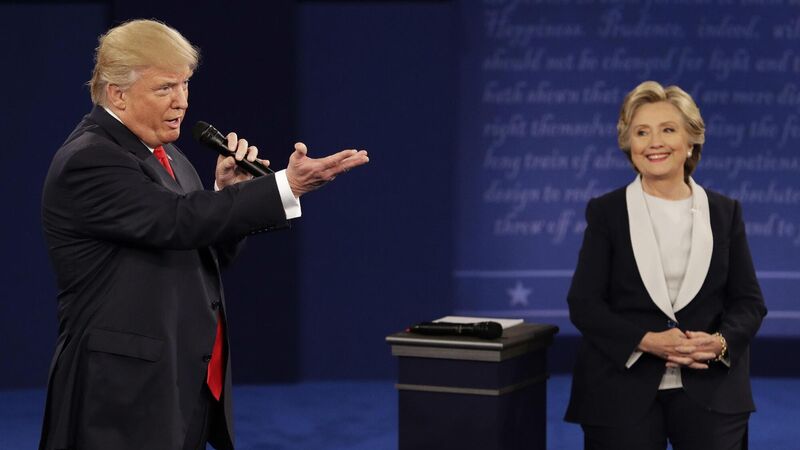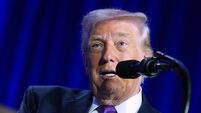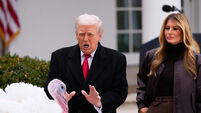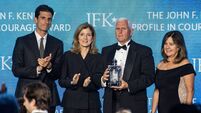2016 US presidential election was not heavily influenced by disinformation campaigns, research finds

Donald Trump and Hillary Clinton during a presidential debate at Washington University in 2016. Picture: AP
The voting behaviour of American citizens heading into the 2016 US presidential election was not influenced by foreign disinformation campaigns on Twitter, a new study involving researchers from Trinity College Dublin has claimed.
Such disinformation campaigns only reached a small subset of users, most of whom were already highly partisan Republicans, during the race between Donald Trump and his Democrat rival Hillary Clinton according to the study.













